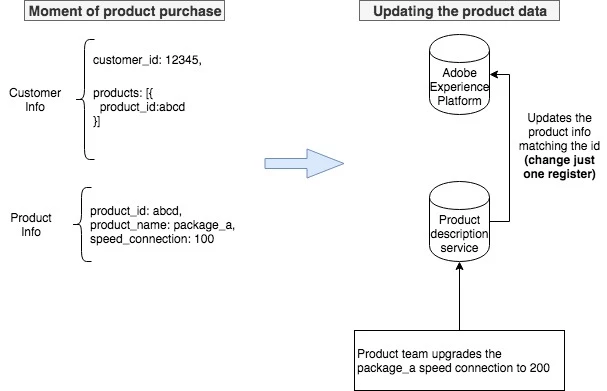Several Entities inside Adobe Experience Platform
I have being digging around the documentation of Platform and I haven't been able to figure out if it is possible to create different entities apart from the customer inside Platform. I am thinking for example in creating a entity like products that would have its own unique ID (an SKU for example) but it wouldn't be attached directly to a user.
An example of use case of what I would like to achieve is this:
Imagine you are a telco company and you have just upgraded one of your products package connection speed from 100 Mbps to 200 Mbps. One of the teams running email campaigns wants to target clients who have a speed connection under 150 Mbps. In order to not send the wrong campaigns we need to update the product information inside the database, I am seeing two possible approaches:
- If there is only one possible entity (the customer):

- If you can create several entities (one for customers and another one for products):

I don't know if creating a schema for products and not activating the Unified Profile feature would be enough to achieve this. Would you be able to define a specific ID for products and then use it to cross it with a product array inside a customer profile? I guess that through through the application of models that would be possible but without them not.